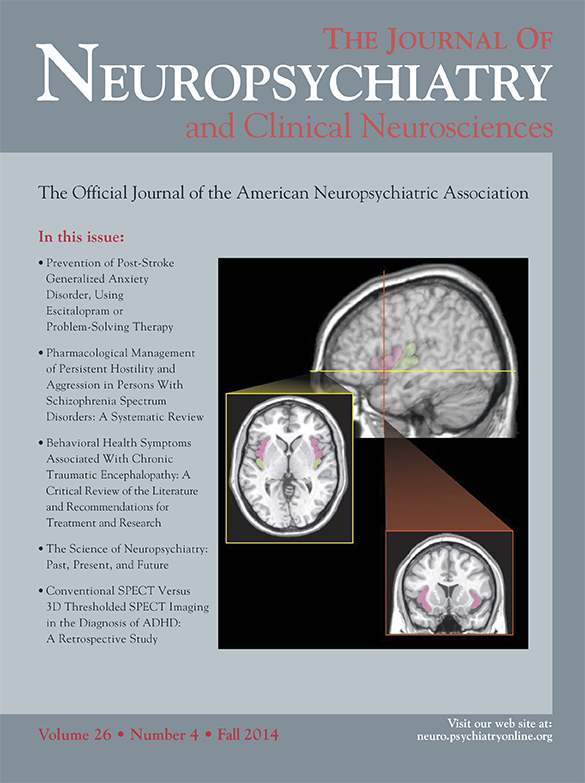To the Editor: Approximately 2%−3% of the world’s population suffers from obsessive-compulsive disorder (OCD), a prevalence that is constant across cultures. Despite advances in psychopharmacology and the approval of selective serotonin reuptake inhibitors (SSRIs) for treatment of OCD, 40%−60% of patients with OCD show limited to no improvement while using them.
1Case Report
“Mr. C” is a 25-year-old man with a history of OCD since 12 years of age and was brought to the emergency room for worsening self-injurious behavior, suicidal gestures of taking an extra tablet of diazepam, and ongoing conviction that the devil was trying to rape him. History was difficult to obtain from the patient due to ego-dystonic fixation on intrusive graphic sexual images and circumstantial thought processes. He exhibited high levels of anxiety and tearfulness, minimal eye contact, and psychomotor agitation. His thought content was notable for hyper-religiosity, thought insertion, and ego-dystonic sexual ruminations. He failed trials of cognitive-behavioral therapy (CBT), fluvoxamine, aripiprazole, venlafaxine, olanzapine, fluoxetine, diazepam, quetiapine, and risperidone. He denied use of nicotine, alcohol, or illicit drugs.
While an inpatient, he received three bitemporal ECT treatments at 0.5 pulse width, 30 Hz, 2.0-second duration, and 800 mA, and noted continued anxiety, but he was able to sit quietly and answer questions with linearity and logic. He was discharged to continue five more ECT treatments followed by maintenance therapy and medication management including diazepam, fluoxetine, and quetiapine. All involved reported significant reduction in intensity of intrusive thoughts and an increased ability to maintain orientation and memory, although he continues to exhibit anxiety. Mr. C is taking greater pleasure in activities and has not had any adverse cognitive effects, has been employed, and now works 5 days per week.
Discussion
This patient presented a unique diagnostic challenge in differentiating intrusive thoughts with poor insight as a part of OCD from thought insertion due to a psychotic disorder. He met DSM-IVR criteria for both OCD and schizophrenia (DSM-IVR). As many as one-quarter of persons with schizophrenia also have OCD
2; Hwang and Hollander use the term “schizo-obsessive.”
3 Although SSRIs are first-line treatment, more than half of patients have limited to no improvement while using them.
1 The landmark retrospective study on the use of ECT for OCD was published by Maletzky et al.; schizo-obsessive disorder appears to be responsive to ECT.
4 There are at least two previous case reports of coexistent OCD and schizophrenia being treated successfully with ECT.
5,6This report, when considered with other reports of successful treatment of OCD with ECT, suggests that ECT may be a viable therapy for severe refractory OCD.

